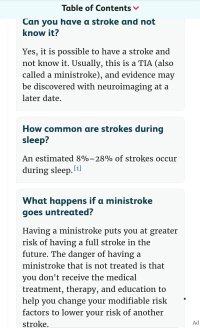Candeias
Member
- Joined
- Apr 29, 2018
- Messages
- 220
It would be truly ironic and tragic if that was the cause.
We'll never know, but what I said is just pure speculation.
He may have had ministrokes before and that's why his difficulties lately, but as far as I know low doses of aspirin protect against that, I don't know about higher doses though.





